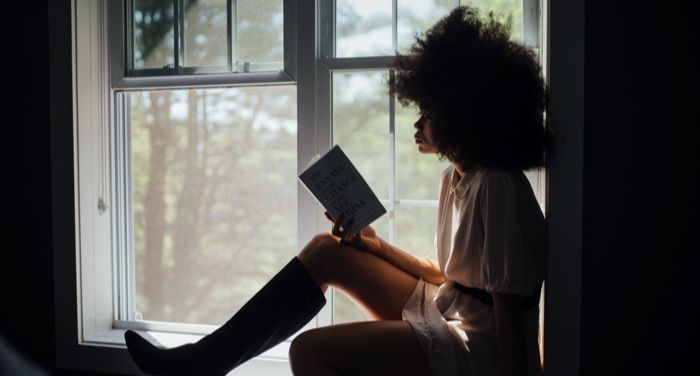
9 Empowering Feminist Quotes By Women Of Color
Once upon a time, whether the “subaltern” could speak was a matter of debate. But there is nothing like the voiceless. Either we have the forcefully silenced or the preferably unheard. With time, women of color reclaimed the tools that were only accessible to the privileged and denounced white feminism. Here is a list of quotes by authors of color who deserve to be heard and celebrated this International Women’s Day.
“I love to see a young girl go out and grab the world by the lapels. Life’s a bitch. You’ve got to go out and kick ass.”
—Maya Angelou
“I was going to die, sooner or later, whether or not I had even spoken myself. My silences had not protected me. Your silences will not protect you…What are the words you do not yet have? What are the tyrannies you swallow day by day and attempt to make your own, until you will sicken and die of them, still in silence? We have been socialized to respect fear more than our own need for language.
“I am a feminist, and what that means to me is much the same as the meaning of the fact that I am Black; it means that I must undertake to love myself and to respect myself as though my very life depends upon self-love and self-respect.”
—June Jordan, Civil Wars
“Nobody’s going to save you. No one’s going to cut you down, cut the thorns thick around you. No one’s going to storm the castle walls nor kiss awake your birth, climb down your hair, nor mount you onto the white steed. There is no one who will feed the yearning. Face it. You will have to do, do it yourself.”
—Gloria Anzaldua
“The only dream worth having is to dream that you will live while you are alive, and die only when you are dead. To love, to be loved. To never forget your own insignificance. To never get used to the unspeakable violence and vulgar disparity of the life around you. To seek joy in the saddest places. To pursue beauty to its lair. To never simplify what is complicated or complicate what is simple. To respect strength, never power. Above all to watch. To try and understand. To never look away. And never, never to forget.”
—Arundhati Roy, The God of Small Things
“Today we are faced with a challenge that calls for a shift in our thinking, so that humanity stops threatening its life-support system. We are called to assist the Earth to heal her wounds and in the process heal our own—indeed to embrace the whole of creation in all its diversity, beauty and wonder. Recognizing that sustainable development, democracy and peace are indivisible is an idea whose time has come”
“When you write, it’s like braiding your hair. Taking a handful of coarse unruly strands and attempting to bring then unity.”
—Edwidge Danticat
“I do want to create art beyond rage. Rage is a place to begin, but not end. I’m not as wise as my work, but I know if I take the writing deep enough, something larger and greater than myself will flash forth and illuminate me, heal me. I do want to devour my demons—despair, grief, shame, fear—and use them to nourish my art. Otherwise they’ll devour me.”
—Sandra Cisneros
“We are not born women of color. We become women of color. In order to become women of color, we would need to become fluent in each others’ histories, to resist and unlearn an impulse to claim first oppression, most-devastating oppression, one-of-a-kind oppression, defying comparison oppression. We would have to unlearn an impulse that allows mythologies about each other to replace knowing about one another. We would need to cultivate a way of knowing in which we direct our social, cultural, psychic, and spiritually marked attention on each other. We cannot afford to cease yearning for each others’ company.”
—M. Jacqui Alexander, Pedagogies of Crossing: Meditations on Feminism, Sexual Politics, Memory, and the Sacred














